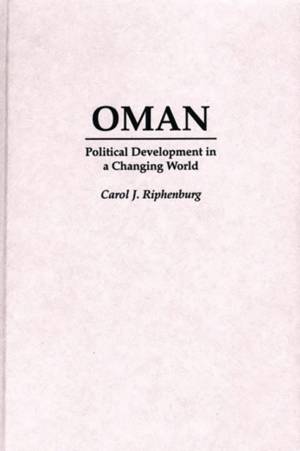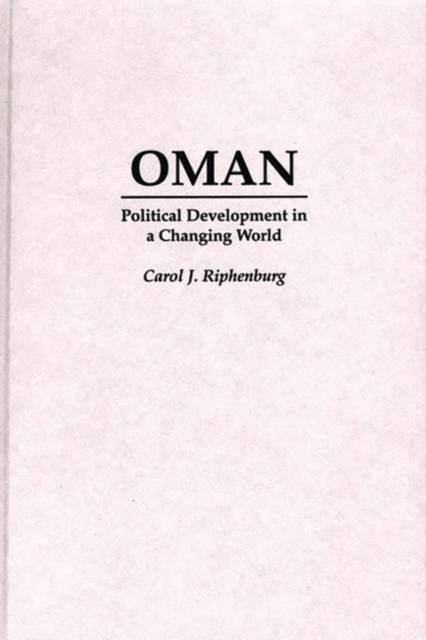
- Retrait gratuit dans votre magasin Club
- 7.000.000 titres dans notre catalogue
- Payer en toute sécurité
- Toujours un magasin près de chez vous
- Retrait gratuit dans votre magasin Club
- 7.000.0000 titres dans notre catalogue
- Payer en toute sécurité
- Toujours un magasin près de chez vous
Description
The Sultanate of Oman overlooks one of the most strategic waterways in the Middle East: the Strait of Hormuz. Sharing the guardianship of the Strait with Iran, Oman's position is of key importance to the security of the entire Gulf, which holds a large portion of the world's oil resources. In a 1970 palace coup, Sultan Qaboos ibn Sa'id overthrew the repressive and reclusive rule of his father and embarked on a program of modernization. Oman became one of the success stories of the developing world, instituting a modern educational system, creating a modern infrastructure, becoming an oil exporter, and constucting an elaborate social welfare system.
Today the country faces a host of challenges. Oman cannot defend itself from hostile neighbors without assistance. Restructuring Omani society and the economy present even greater difficulties. Moreover, change must occur at a time when Islamic movements pose a significant political threat, and oil income is not sufficient to meet the country's social and economic needs. Professor Riphenburg has provided a survey that will be invaluable to all students and researchers of the modern Middle East.Spécifications
Parties prenantes
- Auteur(s) :
- Editeur:
Contenu
- Nombre de pages :
- 264
- Langue:
- Anglais
- Collection :
Caractéristiques
- EAN:
- 9780275961442
- Date de parution :
- 18-02-98
- Format:
- Livre relié
- Format numérique:
- Genaaid
- Dimensions :
- 160 mm x 241 mm
- Poids :
- 503 g

Les avis
Nous publions uniquement les avis qui respectent les conditions requises. Consultez nos conditions pour les avis.






